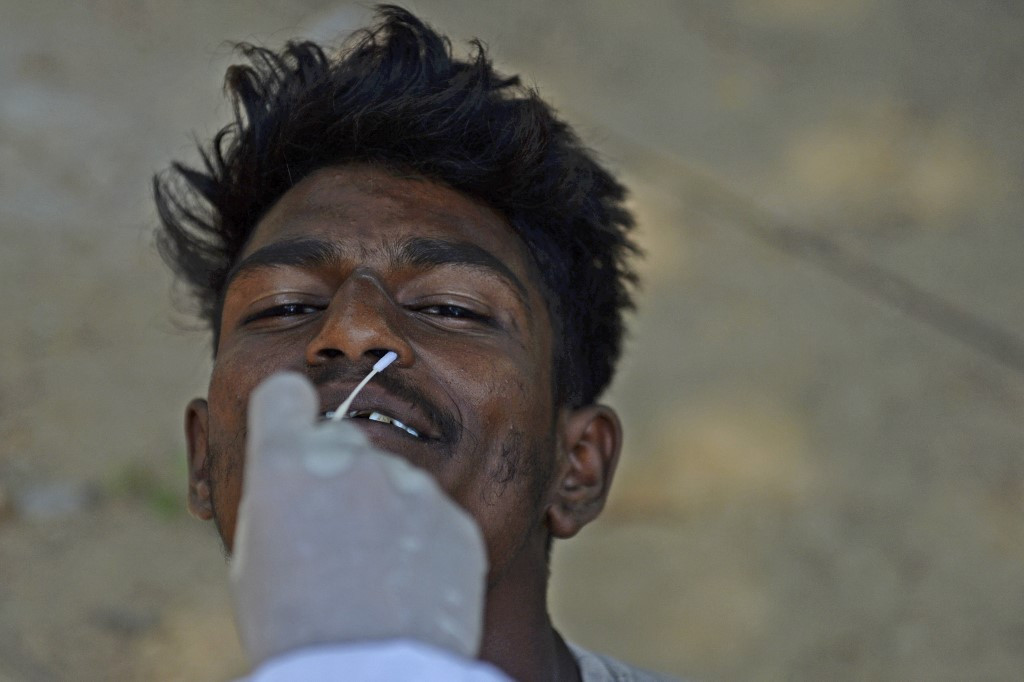Popular Reads
Top Results
Can't find what you're looking for?
View all search resultsPopular Reads
Top Results
Can't find what you're looking for?
View all search resultsJapan universities develop speedier analysis of coronavirus mutations
Researchers say they hope the system will expedite the development of novel therapeutics and preventative measures for COVID-19. The virus has claimed more than 3.10 million lives worldwide as of late April, according to data from Johns Hopkins University.
Change text size
Gift Premium Articles
to Anyone
O
saka University and Hokkaido University in Japan have developed a system capable of analyzing genetic mutations of the novel coronavirus much quicker than conventional methods.
Researchers say they hope the system will expedite the development of novel therapeutics and preventative measures for COVID-19. The virus has claimed more than 3.10 million lives worldwide as of late April, according to data from Johns Hopkins University.
Using the polymerase chain reaction, or PCR, a technique to amplify small segments of DNA, the researchers succeeded in establishing a simple and efficient way to generate infectious clones of SARS-CoV-2, the causative agent of COVID-19, for analysis.
The findings of their research were published in the science journal Cell Reports in April.
Since coronaviruses have large genomes, conventional methods to study mutations are complicated and time consuming, usually taking a couple of months, but the research group's approach shortened them to two weeks, according to the universities in western and northern Japan.
"This method allows us to quickly examine the biological features of mutations in the SARS-CoV-2," said Shiho Torii, the lead author of the study.
A Health, Labor and Welfare Ministry panel indicated in late April that highly contagious coronavirus variants with distinctive mutations were close to replacing other versions of the virus in Osaka and Hyogo prefectures in western Japan, while their spread is accelerating in Tokyo as well.
Their emergence has raised questions among the public on what the mutations really mean and whether they could affect the efficacy of existing vaccines.
Studies suggested a vaccine developed by US pharmaceutical giant Pfizer Inc. and its German partner BioNTech SE, the only COVID-19 vaccine authorized in Japan so far, is effective against coronavirus variants including the more transmissible B.1.1.7, known as the UK variant.
To understand the function of each mutation in the genes of the virus variants, it is essential to generate recombinant virus with each mutation and examine the biological features compared with the parental virus, according to the researchers.
The PCR-based, bacterium-free system allows researchers to quickly examine biological features of recombinant viruses with mutations, created through the method utilizing a circular polymerase extension reaction, or CPER, in comparison with the parental virus, Torii added.
The research team holds high expectations for the CPER method, as it could even generate a recombinant virus not capable of causing disease, which may contribute to the development of a safe and effective vaccine as well as antiviral drugs.











